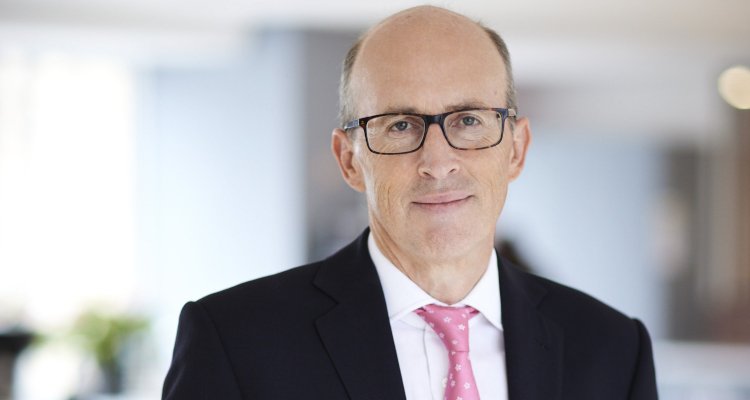PPL Announces Record $350 Million+ in 2023 Distributions, Foresees ‘A Huge Opportunity Ahead to Grow Our Market Share’


PPL CEO Peter Leathem, whose company has announced that its distributions cracked a record $350 million during 2023. Photo Credit: PPL
The UK’s Phonographic Performance Limited (PPL) has announced record-high distributions of over $350 million for 2023.
PPL unveiled the payout milestone, specifically totaling £279.6 million (currently $352.87 million), via a formal release today. According to the 90-year-old collective management organization (CMO), which deals in royalties for the use of recordings in public establishments and broadcasts (radio, TV, etc.), that sum represents a 14.3 percent boost from 2022.
Additionally, PPL’s 2023 distributions reached approximately 165,000 performers and rightsholders, per the entity, and reflect a £7.7 million ($9.72 million) contribution from the business’s music-video-geared sister company, Video Performance Limited (VPL).
In explaining the double-digit year-over-year payout jump, PPL cited factors including an economic recovery from COVID-19 lockdown measures (“more businesses re-opened in the UK and globally”) and its “growing network of international agreements” with global CMOs.
All told, PPL is said to have north of 110 such pacts in place, including recently finalized tie-ups with India’s ISAMRA as well as Azerbaijan’s RAYS. Meanwhile, “a wide range of performers,” among them Trevor Horn, Libianca, and Central Cee, besides indie labels like dance-focused Defected Records, have tapped PPL to collect their neighboring rights royalties, the CMO emphasized.
Moreover, notwithstanding the substantial sums forwarded from PPL to the majors, the former further disclosed that its “number of independent rightsholders paid” increased by 20 percent between 2019 and 2023, with a 19 percent year-over-year indie “distribution payment amount” spike attributed to 2023.
Addressing PPL’s 2023 showing in a statement, CEO Peter Leathem touched upon the ongoing global development of neighboring rights.
“2023 was a record year for PPL and all our members, with a total of £279.6 million paid out,” the more than 12-year PPL head communicated. “We understand these payments are critical for many and we pride ourselves on our ability to deliver them consistently and on time. As neighbouring rights continue to develop around the world, we see a huge opportunity ahead to grow our market share and maximise revenues for performers and recording rightsholders.”
One year back, PPL and Sound Credit partnered, enabling U.S.-based creators to more effectively collect neighboring rights royalties. But the stateside absence of neighboring rights – including on terrestrial radio, where broadcasters pay solely for the use of underlying compositions – is spurring pushback from the likes of IMPALA.
In brief, November saw the latter and others speak out against (and call for legislation to address) the idea, seemingly confirmed in a 2020 Court of Justice ruling, that EU member states must send away recorded performance royalties attributable to the works of professionals residing in the U.S. despite not receiving reciprocal payments.
Link to the source article – https://www.digitalmusicnews.com/2024/02/07/ppl-2023-distributions/
Recommended for you
-
POMAIKAI Beginner Ukulele Soprano Uke 21 Inch Starter Ukelele Four String Wood Hawaii Wood Uke (Light-Blue)
$39,99 Buy From Amazon -
Rockville (2) DPM8B Dual Powered 8″ 600w Active Recording Studio Monitors+Pads
$272,90 Buy From Amazon -
100 NormanC Regal Black King, Drummer or Bugle Horn Player African American 15″ Nutcracker Holiday Decor ~ Choose Your Design (Bugle Horn Player)
$47,00 Buy From Amazon -
Coolmusic BP80 Battery Powered Acoustic Guitar Amplifier- Portable Bluetooth Speaker 100W, 6 Inputs,3 Band EQ,Orange
$229,99 Buy From Amazon -
Bass Chords Poster Music Wall Art Framed Canvas Print Bass Chord Chart Posters Musical Instrument Educational Wall Decor For Office 12x18inch Framed
$25,66 Buy From Amazon -
Baritone Ukulele Chords Chart
$10,00 Buy From Amazon -
PIIHUSW MIDI Cable, 3.5mm 1/8 inch TRS Stereo Male Jack to 5 Pin Din Plug Converter Cord Audio Cable (1.5meter)
$7,99 Buy From Amazon -
UMOMO 88 Key Weighted Digital Piano with Duet Piano Bench, Beginner Keyboard Piano Full Size Heavy Hammer Weighted Action Electric Piano Keyboard with MIDI, White
$379,99 Buy From Amazon













Responses